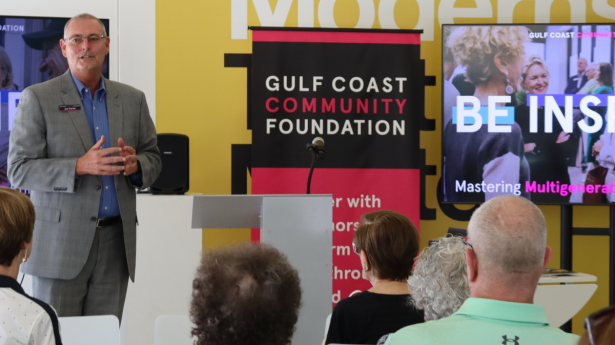
September Newsletter
A Note from Joe

The days are getting shorter! We’re already hearing from attorneys, CPAs, and financial advisors that you’re ready to get a jump on year-end charitable planning for your clients. Many thanks to those of you who have reached out!
In the spirit of staying ahead of the curve, we’re covering important topics not normally thought about this month that can help you as you begin to talk with clients about the remaining “must do” items for 2024, including charitable giving.
Your September Content
Your clients who are business owners and who are also philanthropic will appreciate your suggestions about incorporating charitable giving into their succession plans. This is a good time to have that conversation in light of legal developments and upcoming tax law changes. We can help!
As always, Gulf Coast stays on top of trends that impact your work with your charitable clients. We’re sharing updates so you can stay current on popular planning techniques, how the election year may influence charitable giving, and what’s ahead on the calendar to help motivate your clients to complete their planning to do lists.
Thank you for the opportunity to work with you! We are honored to help you serve your charitable clients and proud to be your partner in philanthropy.

Trends to Watch: Charitable Giving & the Election
We keeps a finger on the pulse of current events and legal developments that could impact the way you work with your charitable clients. Below are four notable items that you’ll likely want to keep in mind this fall.
Four Charitable Giving Trends To Watch
1. Donor Advised Funds (DAFs) are an increasingly popular tool for giving.
Between 2016 and 2022, the number of DAFs in the US increased by 572% and contributions to DAFs increased by 239%.
2. Individual cash donations are declining.
Individuals contributions have declined in both 2022 and 2023.
3. Donations of noncash assets are rising.
Noncash assets, including stocks, real estate, intellectual property, and privately held stock to name a few have increased 135% between 2013 and 2021. In fact, 46% of all individual giving in 2021 was via noncash assets.
4. Mutual aid and crowdfunding are losing momentum.
During Covid these platforms skyrocketed, but since have lost their momentum. In 2020 more than 11,000 donations were to various platforms, but that number has declined to less than 4,000 gifts in 2022.
Election Year Implications
Naturally, as a financial, legal, or tax advisor, you’re very interested in how the results of the November elections could impact tax laws. What you might not know, though, is how significantly an election cycle can impact nonprofits’ fundraising efforts. Keep this dynamic in mind as you meet with clients who serve on nonprofit boards. These clients will appreciate the fact that you’re aware of the challenges. They’ll also be glad to know that you’re happy to loop in the Gulf Coast team as a resource to structure and accept complex gifts as nonprofits double down on fundraising efforts this year.

Charitable Goals: Gifts of Stock & Estate Planning
Giving closely or privately-held stock can be a viable strategy for any private business owner to explore. Not only can these gifts help implement a business succession plan that calls for transferring the business to the next generation if that is your client’s goal, but gifts of closely or privately-held stock can also help your business owner client achieve charitable goals and avoid estate tax.
In light of recent legal developments and pending tax law changes, more and more financial and estate planning advisors are encouraging their clients to consider implementing gifts of closely or privately-held stock to a fund at the foundation or other public charity. Notably, two developments could have a big impact on your work with these clients:
1. The estate tax exemption sunset set to occur at the end of next year continues to loom large. Without intervening legislation, a lot more of your clients will need to wrestle with the reality that their estates likely will be subject to a hefty tax, causing many clients to rethink both the timing and methods to transfer business interests. Making gifts of closely-held business interests to a fund at the community foundation is likely to become more attractive to a broader cross-section of your client base.
Donating closely or privately-held stock can also be attractive for those looking to expedite stock transfers. For many business owners transferring stock during their lifetimes is a way to take advantage of a current charitable income tax deduction. For example, they could gift personal shares of their company into a donor advised fund and have the donor advised fund sell the stock back to the business, existing employees or a new partner or owner. The sales transaction would then fuel their charitable giving in a much more tax efficient and effective manner. All while lowering their taxable estate.
An Example: Mr. James established his company years ago and has added two partners over the years. He is considering reducing his stake in the company by selling a portion of his share to his two partners. Rather than selling his current shares to them, he could gift a portion or all of his desired interest to a donor advised fund at Gulf Coast. He would receive a charitable deduction based on the value of the stock, the partners would then purchase the shares at market value.
Result: Mr. James, reduces his shares and thus his estate, uses the deduction to offset any capital gains associated with shares sold outright and he now can grant to his favorite organizations from his donor advised fund.
2. Valuation has always been a critical factor in any type of tax or estate planning. This is certainly still the case with substantiating the value of closely-held business interests that your clients transfer to a charity, such as a fund at Gulf Coast. And now, the additional wrinkle presented by the Supreme Court’s decision in Connelly v. United States makes things even more interesting. The Connelly decision impacts the way business interests are valued for estate tax purposes. In Connelly, the Supreme Court held that life insurance proceeds indeed ought to be included in the valuation of a company without offsetting the redemption obligation. This could translate to higher taxable estates for your business owner clients, creating further incentive to leave a portion of closely-held stock to charity. The decision is also a reminder that careful planning can potentially avoid pitfalls.
Please connect with us to learn more about how our team can support you as you work with your business-owner clients to navigate legal and tax developments that could significantly impact future plans for their privately-held companies.
Your Resource.
As you serve your philanthropic clients, we strive to be your resource and sounding board. Understanding the charitable side of the equation allows us to serve as a secondary source for you as you manage the primary relationship with your clients.
Connect with us anytime! It’s our pleasure to work with you in partnership as you help your clients achieve their charitable giving goals for this year and many years beyond tomorrow.



